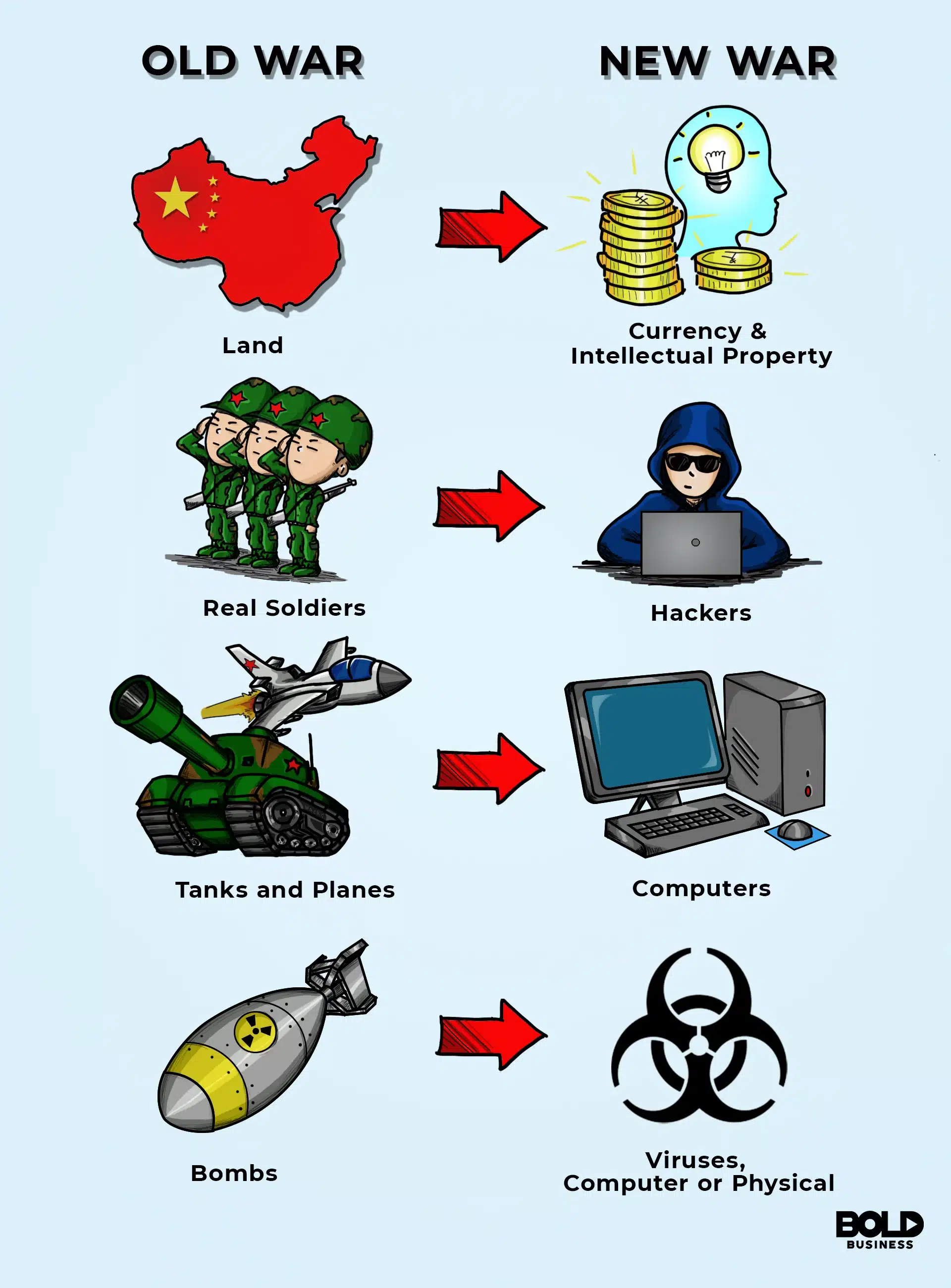“Peace cannot be kept by force; it can only be achieved by understanding.”
~Albert Einstein
Overview
Peace and Conflict studies might just remain an unending subject of research for academics regardless of the era. As the humanity evolves, adapting itself to the ever growing pace of technology that inevitably adds a new dimension within kinetic or non-kinetic battlefields; world grows forever more complex. Be it the professional soldiers of Sparta marching towards thermopiles, Greeks finding breakthrough in siege through infiltration, Attila ‘the Hun’ using a strategic move to offset defenses of his enemies, Alexander conquering nations by discipline and maneuver of his forces, Khalid ibn Waleed crushing his enemies by endurance, tactics and surprise, Temujin amassing hoards, Napoleon decentralizing command structure, logistical independence and breaking his enemy in combat maneuver, Union utilizing train network and industries to carve a win from south during American Civil War or nations uniting under banner of nationalism to fight against Axis or Allies using technology, transcontinental sustenance and superior firepower both on land and sea; ‘War’ in its essence has remained an ‘Art’ untouched by the ravishes of time.

Nation States & Blocs

In a guest talk on Geo’s Naya Pakistan program by Shehzad Iqbal who had invited Senator Mushahid Hussain to discuss the topic ‘Pakistan joins the China Bloc’; the senior politician eloquently presented the case for Pakistan and endeavor to prioritize own national interest. He explained that Pakistan didn’t intend joining any bloc whatsoever and declining US democracy summit invitation by foreign office was being misconstrued by the invitee in the most undemocratic of manners. For example China who is a major stakeholder in the region was excluded from the summit while India who has now escaped human rights violations on a mass scale sat on the table pretending to be the bastion of democracy. Refusal to accommodate any governance methodology that did not mimic US own model all the while keeping a blind eye on most horrid extremist policies of her long-term ally was by every definition undemocratic. Perhaps a clear indication that it was not China that was creating a bloc but the so called democratic United States.
This is not something new, pages of history are rife with events that depict nations prioritizing own self-interest when it comes to their security and stability. When Napoleon Bonaparte-I seized power in 1799 he directed his guns towards France’s key adversary, British Empire that exuded its influence across continents therefore depriving the French emperor of his own area of influence. Bonaparte’s capability of winning wars was not because he was a good soldier but also a great diplomat. Instead of landing his armies into British Isles and preparing for a conventional face-to-face war, as was the norm in that era, he resorted to issuing ‘Berlin Decree’ that served as a counter to Britain’s naval blockade. The goal of ‘Continental System’ was to force Britain to peace table by depriving her of trade with Europe thereby wrecking her economy. Albeit, it proved ineffective primarily because of her Majesty’s uncontested powerful naval fleet yet war academics, such as, Sir Basil Henry Liddell Hart term it as an extraordinary move by French.
Fast forward into chaotic times when the entire world was at war, we witnessed Allies against Axis, fighting tooth and nail to deprive the other a foothold into future where a certain ideology could prevail. From economic embargoes to military alliance, historians recorded nations unite under a common goal of survival rendering their closely held customs and beliefs as second priority. Americans who joined both World Wars in later stages of war proved to be pivotal in shaping the course of war and subsequently narrative afterwards. It would not be farfetched to acknowledge that 21st century has been shaped by the victors of WW-II. 20th century therefore set the tone for the entire world to shape their national policy never to compromise on national security and self-preservation.
Elements of Power
In a Joint Doctrine Note 1-18 published under the vice-admiralship of Director Kevin Scott (USN) the Joint Chief of Staff, Department of United States Armed Forces; the elements of power were defined as Diplomacy, Information, Military and Economy (DIME). Keeping past world events in view, the above mentioned four tenets prove to be essential in all aspects of a state’s policy be it foreign or domestic. China’s GDP has exponentially increased since 1978, lifting 800 million out of dismal poverty all the while shaping a narrative integrated in national cohesion, preservation, sustainability and security. In an article ‘Understanding China’s 2021 Defense Budget’ by Center for Strategic and International Studies (CSIS), the researchers observed that although China’s defense budget slightly grew with respect to 2016 but maintained at a stable pace with regards to her GDP. The massive surge in defense development as observed by the global players is not because of China’s compromise on GDP but due to consistent improvement in her economic profile. United States and her allies who have always depended on their war industries post 19th century are witnessing a free fall of their economies as more and more states fight for their sovereign rights to remain impartial in conflicts and prioritizing their economies to increase GDP. Trans-Pacific Partnership (TPP), Central American Free Trade Agreement (CAFTA), North American Free Trade Agreement (NAFTA) and Vision 2030 (Kingdom of Saudi Arabia) are few examples that simply fade away when compared to China’s singular trade policy of Belt and Road Initiative (OBOR).
Needless to say, China’s trade policy provides tremendous opportunities and incentives for countless countries across the globe. This trade policy or economic alliance neither deprives the nations of their sovereign rights to govern, enslave them to the dictates of a super power, needlessly drags them into a war alliance, create an environment of instability nor ideological meddling that almost always results in a regime change or worse civil war. Revisiting the four tenants of US Joint Doctrine; all of them are possible with just one trade agreement proposed by China. The United States, banner holder of democracy should therefore not coerce other nations into joining a bloc against China and instead allow the fledgling communist country to take lead in matters of global economic prosperity. QUAD is by this perspective resembles the ‘Berlin Decree’, something doomed to failure in the testimony of history.
US “Pivot to Asia”
18th century military theorist and Prussian general Karl von Clausewitz theorized in his works that politics and war were interloping inter-changing entities that dictated state policy matters. Nations waged absolute wars upon each other to achieve objectives of regional hegemony, resource monopoly, ideological expansionism or perhaps just to increase serfdom. Inadvertently the trinity of Government-Military-People played key roles in serving the state’s pillars of power. US, a super power remained a major player in global politics since 20th century. All her allies molded their national drift according to US policy drift be it trade, politics, government frameworks or war polity. Since 1960s US remained wary of China’s revival, a huge mass on land that filled the air with chaos, civil unrest and drugged population suddenly started to wake from slumber. It brought about a radical governance shift from accountability of untouchable elites down to welfare of a common Chinese. Within a decade, the rotting landmass began to transform into a progressive industrious paradise. Utilizing her massive population instead of relying on expansionist policies, it brought about a shift in national discourse. China invested first in her own people by eliminating white collar crimes, strict accountability of corrupt and ensuring meritocracy at grass root. By the turn of 21st century China emerged not only as a key regional power but a super power. It currently projects 2nd highest GDP in the world after United States of America.
US who supports a massive military industrial complex invested heavily in South Asia especially in Afghanistan where it went to war after 9/11 and in India her long-term ally. In February 2021, Joe Biden, President of the United States (POTUS) declared, “Diplomacy is back at the center of our foreign policy” and “we will repair our alliances and engage with the world once again”. This was during bilateral meeting with Indian Prime Minister of India Narendra Modi at the White House. Policy analysts project that US need for these bilateral relations including emphasis of QUAD are in light of countering China’s ever increasing global influence. India being the only regional presence with a massive population and an equally sizable standing military would be able to offset the balance both in terms of military and economy. Securing maritime shipping zones such as South China Sea (SCS) is a must for any nation aiming to establish a sustainable foothold in economic prosperity; inevitably SCS is witnessing ever increasing tensions due to its economic value. The United Nations Conference on Trade and Development (UNCTAD) estimates that roughly 80 percent of global trade by volume and 70 percent by value is transported by sea. Of that volume, 60 percent of maritime trade passes through Asia, with the SCS carrying an estimated one-third of global shipping. Its waters are particularly critical for China, Taiwan, Japan, and South Korea, all of which rely on the Strait of Malacca, which connects it by extension with SCS, the Pacific Ocean with the Indian Ocean. As 2nd largest economy in the world with over 60 percent of its trade in value traveling by sea, China’s economic security is closely tied to the South China Sea.
Meanwhile, 1.27 million standing army with ~0.96 million in reserve, makes India a key ally to US if it ever aims to counter China in terms of military might. Be it as it may US remains deliberately oblivious to on ground realities prevalent in India such as ~6-8% of its population (nearly 85 million people) is falling beneath the poverty line and a military facing not just China but Pakistan as well if it comes down to battlegrounds. In short, the ‘Pivot of Asia’ of not only unreliable but rusted from within.
Conclusion
In a world that is an amalgam of ideologies leaning from extreme left to far right, it is not possible to put a strait jacket on the narratives and intellectual discourse. We are currently living in a society connected by social media where information reaches from one part of the globe to the other on a click of a button. Information security no doubt an imperative aspect of state power is under supplementation by Artificial Intelligence (AI) to cater for info leaks yet there is not curbing propaganda and disinformation. This era is of narrative molding not suppression, already an imminent crisis of climate change is facing down the world. US and her allies therefore should step into the sun and embrace the realities facing us all less the next chaos will not end with a victor standing atop a region but a mountain of ashes.
Mubashir Zia, passionate about reading and writing, explores history and regional affairs with a keen eye, while also providing astute analysis as a defense analyst.



Add a Comment